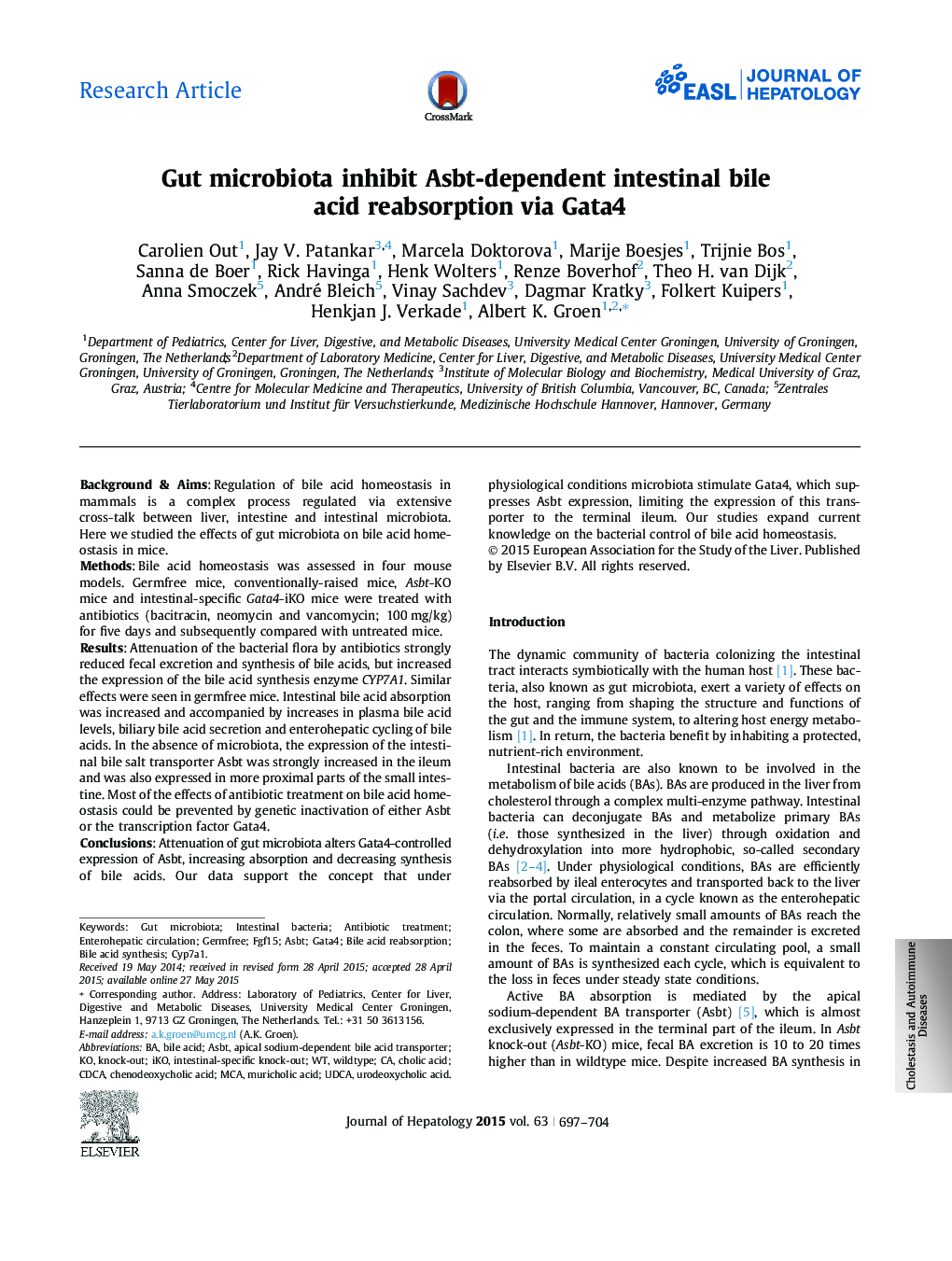| Article ID | Journal | Published Year | Pages | File Type |
|---|---|---|---|---|
| 6101747 | Journal of Hepatology | 2015 | 8 Pages |
Background & AimsRegulation of bile acid homeostasis in mammals is a complex process regulated via extensive cross-talk between liver, intestine and intestinal microbiota. Here we studied the effects of gut microbiota on bile acid homeostasis in mice.MethodsBile acid homeostasis was assessed in four mouse models. Germfree mice, conventionally-raised mice, Asbt-KO mice and intestinal-specific Gata4-iKO mice were treated with antibiotics (bacitracin, neomycin and vancomycin; 100Â mg/kg) for five days and subsequently compared with untreated mice.ResultsAttenuation of the bacterial flora by antibiotics strongly reduced fecal excretion and synthesis of bile acids, but increased the expression of the bile acid synthesis enzyme CYP7A1. Similar effects were seen in germfree mice. Intestinal bile acid absorption was increased and accompanied by increases in plasma bile acid levels, biliary bile acid secretion and enterohepatic cycling of bile acids. In the absence of microbiota, the expression of the intestinal bile salt transporter Asbt was strongly increased in the ileum and was also expressed in more proximal parts of the small intestine. Most of the effects of antibiotic treatment on bile acid homeostasis could be prevented by genetic inactivation of either Asbt or the transcription factor Gata4.ConclusionsAttenuation of gut microbiota alters Gata4-controlled expression of Asbt, increasing absorption and decreasing synthesis of bile acids. Our data support the concept that under physiological conditions microbiota stimulate Gata4, which suppresses Asbt expression, limiting the expression of this transporter to the terminal ileum. Our studies expand current knowledge on the bacterial control of bile acid homeostasis.
